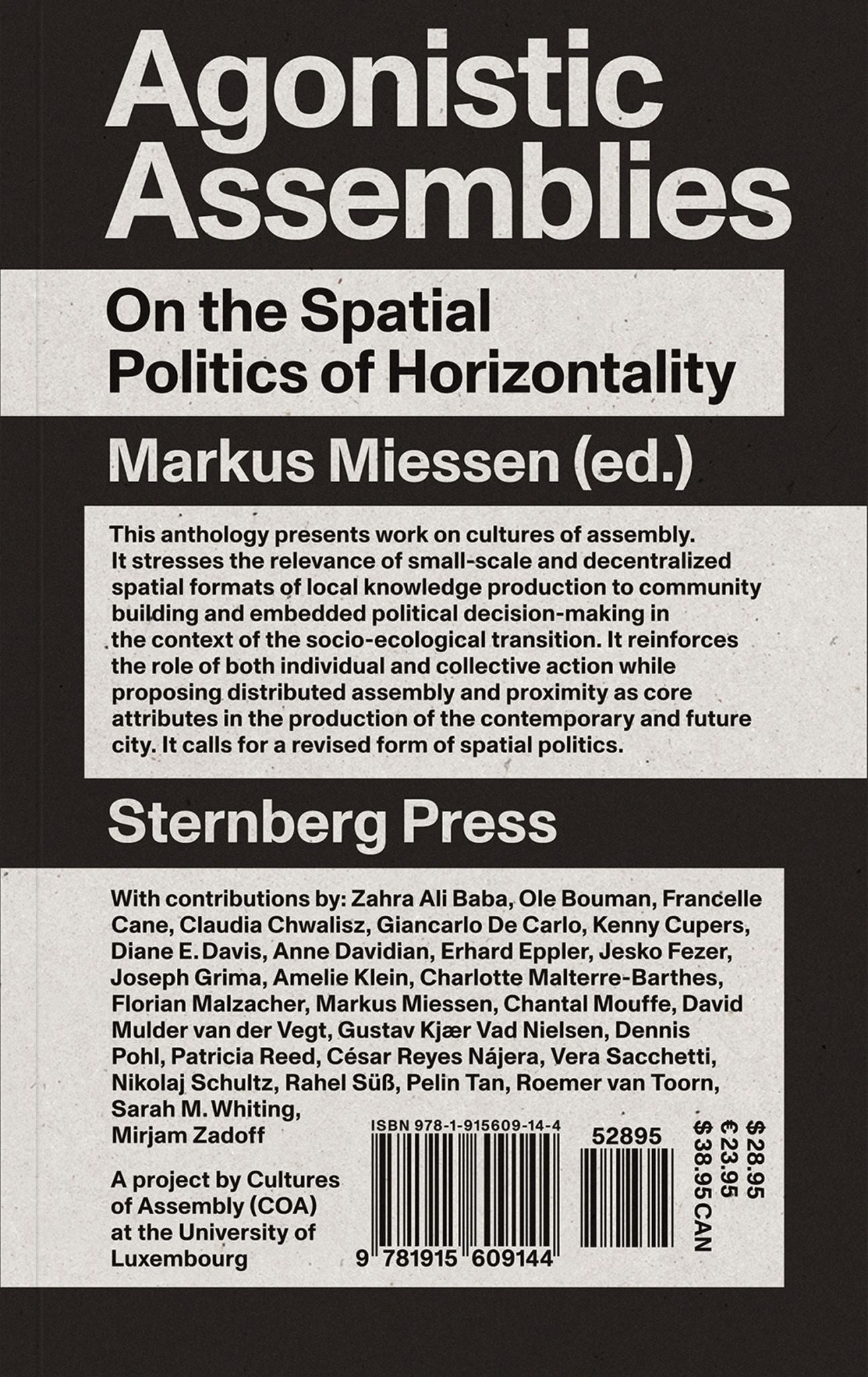Description
Introducing 'Agonistic Assemblies', a groundbreaking anthology that explores the transformative power of spatial politics in community building. This invigorating work presents insightful research on cultures of assembly, emphasizing the importance of small-scale, decentralized spatial formats for local knowledge production. As we navigate the socio-ecological transition, the need for embedded political decision-making becomes paramount. The book showcases the vital roles of both individual and collective actions, advocating for distributed assembly and proximity as essential attributes in envisioning the contemporary and future urban landscape.
Drawing from Miessen's extensive research trajectory on Cultures of Assembly, initiated during a Harvard GSD fellowship, this anthology dives deep into the sociopolitical dimensions of urban spatial design. With a keen interest in the Kuwaiti sociocultural context, particularly the unique structure of Diwaniya, Agonistic Assemblies poses critical questions about how societies can learn from alternative models of physical exchange. This exploration encourages a shift towards decentralized decision-making and spatial justice, offering fresh perspectives on the creation of more solidary urban environments.
Whether you’re an architect, urban planner, or simply passionate about innovative forms of community engagement, 'Agonistic Assemblies' will inspire new ideas and provoke thought about the future of interconnected living spaces. This essential text promises to be a catalyst for change and a significant contribution to contemporary discussions on urbanism and collective action.
Drawing from Miessen's extensive research trajectory on Cultures of Assembly, initiated during a Harvard GSD fellowship, this anthology dives deep into the sociopolitical dimensions of urban spatial design. With a keen interest in the Kuwaiti sociocultural context, particularly the unique structure of Diwaniya, Agonistic Assemblies poses critical questions about how societies can learn from alternative models of physical exchange. This exploration encourages a shift towards decentralized decision-making and spatial justice, offering fresh perspectives on the creation of more solidary urban environments.
Whether you’re an architect, urban planner, or simply passionate about innovative forms of community engagement, 'Agonistic Assemblies' will inspire new ideas and provoke thought about the future of interconnected living spaces. This essential text promises to be a catalyst for change and a significant contribution to contemporary discussions on urbanism and collective action.

